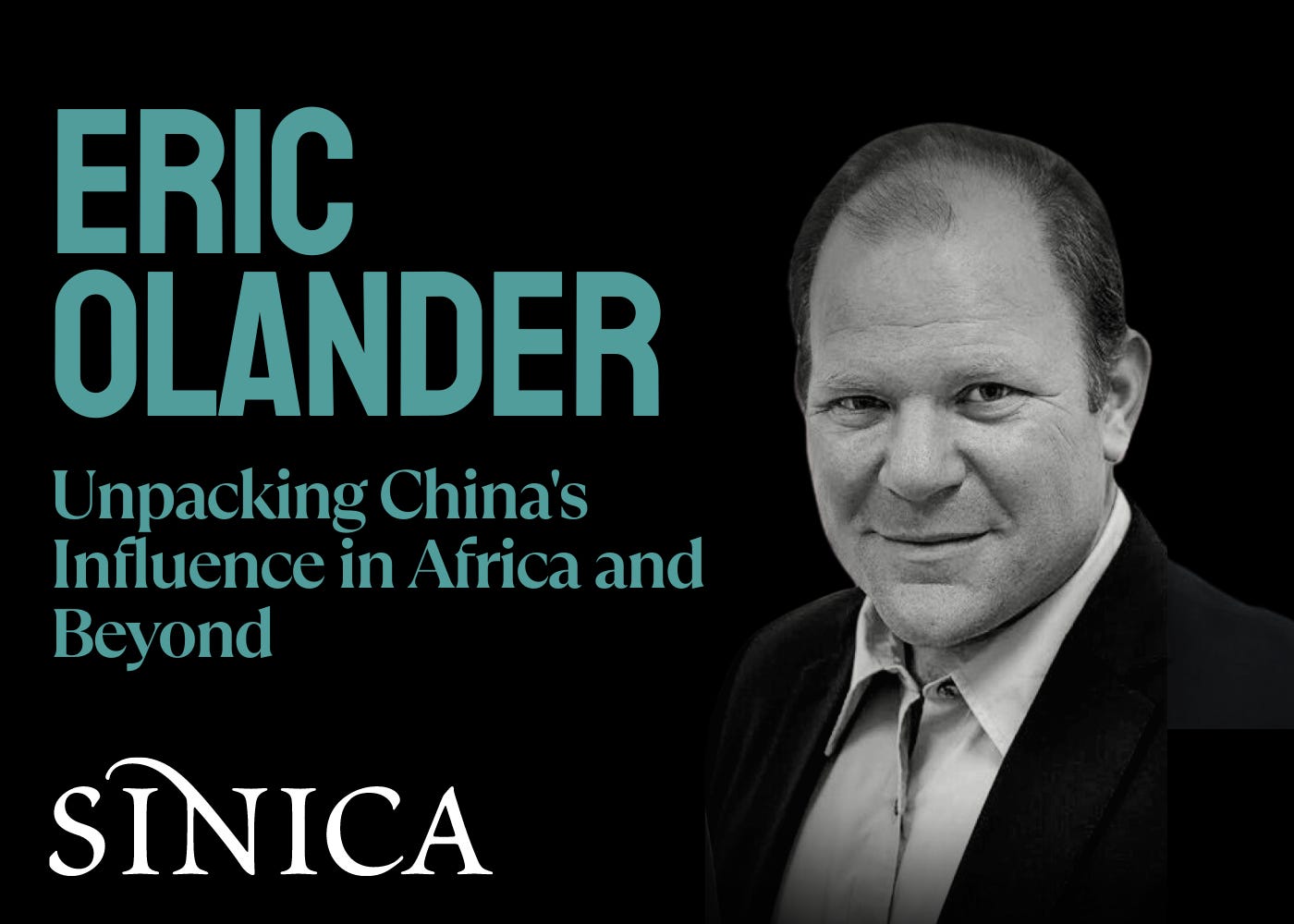Transcript: Eric Olander on China in the Global South
A tour of Chinese foreign relations in the South China Sea, the Middle East, Africa, and Latin America with the host of the China Global South Podcast
Kaiser Kuo: Welcome to the Sinica Podcast, a weekly discussion of current affairs in China. In this program, we’ll look at books, ideas, new research, intellectual currents, and current trends that can help us better understand what’s happening in China’s politics, foreign relations, economics, and society. Join me each week for in-depth conversations that shed more light and bring less heat to how we think and talk about China. I’m Kaiser Kuo, coming to you from Chapel Hill, North Carolina.
Sinica is supported this year by the Center for East Asian Studies at the University of Wisconsin-Madison, a national resource center for the study of East Asia. The Sinica Podcast will remain free, but if you work for an organization that believes in what I’m doing with the podcast, please consider lending your support. You can get me at sinicapod@gmail.com.
And listeners, please support my work on Substack at sinica.substack.com. There you’ll find, in addition to the podcast, the complete transcript of the show, a weekly essay from me, and now a wide range of offerings from some of your favorite China-focused columnists and commentators like James Carter, Paul French, Andrew Methven, and, of course, the guys at the China Global South Project, including this guy, my guest today, Eric Olander.
Eric Olander: Hey, Kaiser.
Kaiser: Hey, Eric. How are you?
Eric: Good to be back on the show.
Kaiser: Great to have you. Eric, of course, is the creator of the long-running China in Africa Podcast, which launched when Sinica did way back in 2010. Since then, he and his partners, Cobus van Staden and, more recently, Geraud Neema have offered the most amazing comprehensive coverage of China’s engagement with the nations, not just of Africa now, but of the whole Global South — covering everything from diplomacy and security to development and infrastructure, from trade and investment to the extractive industries, media, people-to-people ties — everything.
Eric is back in the States right now in Berkeley near our old alma mater, in fact, but as listeners to the show know, he’s based in Ho Chi Minh City most of the time. He and his colleagues, Cobus and Geraud, just did an intense couple of weeks of back-to-back meetings in D.C. I am sure he’s going to tell you all about that. But first, Eric, man, just a warm welcome back. It’s really great to have you back on Sinica and back in the network.
Eric: Always fun to be on the show with you. I know we’re going to cover a lot of ground. I always love having these conversations with you because we can get really, really deep and nerdy on these issues.
Kaiser: Yeah, well, you are the uber-nerd when it comes to this stuff; I am just sort of a nerd junior.
But let’s start, why don’t we start with, as you know, everybody has been really focused on the outcome of the Third Plenum. I mean, I guess that would include myself, but there’s been a lot of news as well from the world of Chinese diplomacy. Much of it involves, of course, the countries of Southeast Asia, but also the Middle East, and, of course, Africa. So rather, I think, than try and hit all of these geographies by speaking separately with specialists in each of these regions, I thought, “I’m just going to go to the one guy I know who’s on top of all of it, and he thinks about this stuff all day,” so today, let’s hit all these regions, and after that, maybe zoom out and talk about what you see emerging as a pattern, if anything. Anything you can discern when you look at these regional moves in aggregate, anything that we can say about broader Chinese strategic objectives, about China’s evolving understanding of its place in the world and how it wants to get to its ideal state, about the extent and the limits of how China wants to reshape the international order.




